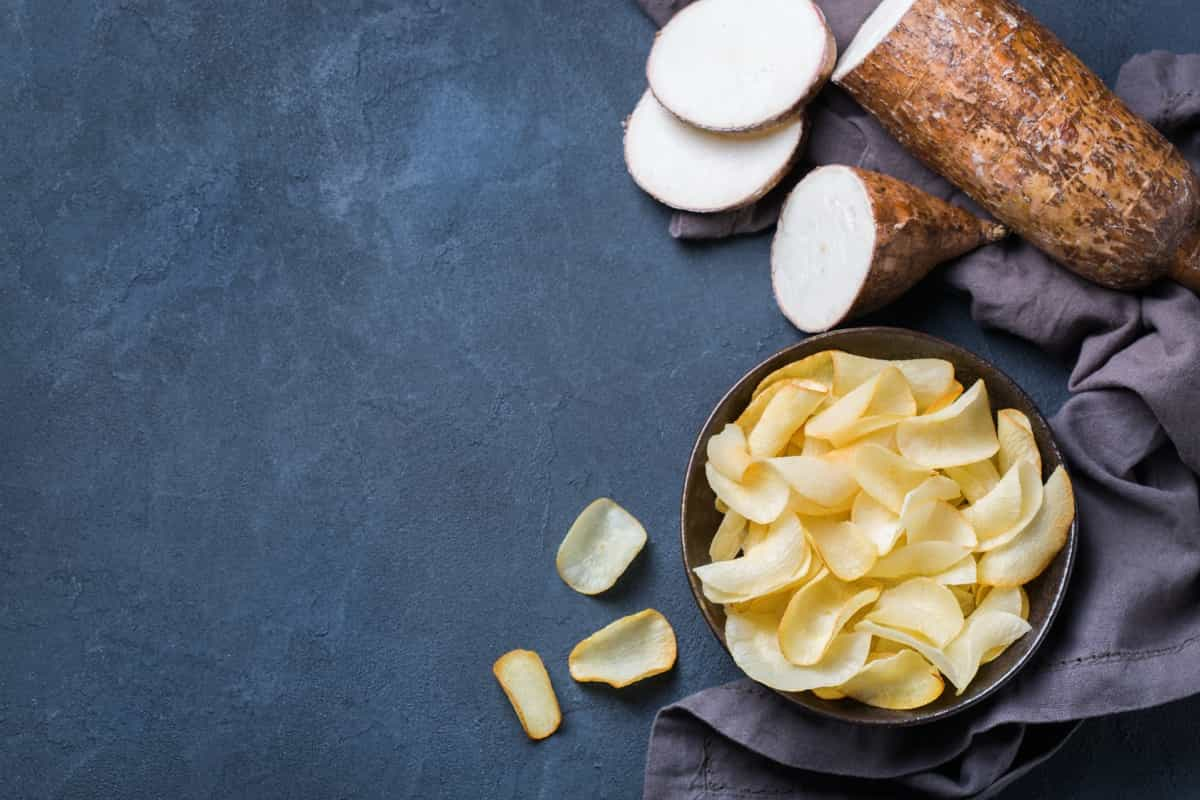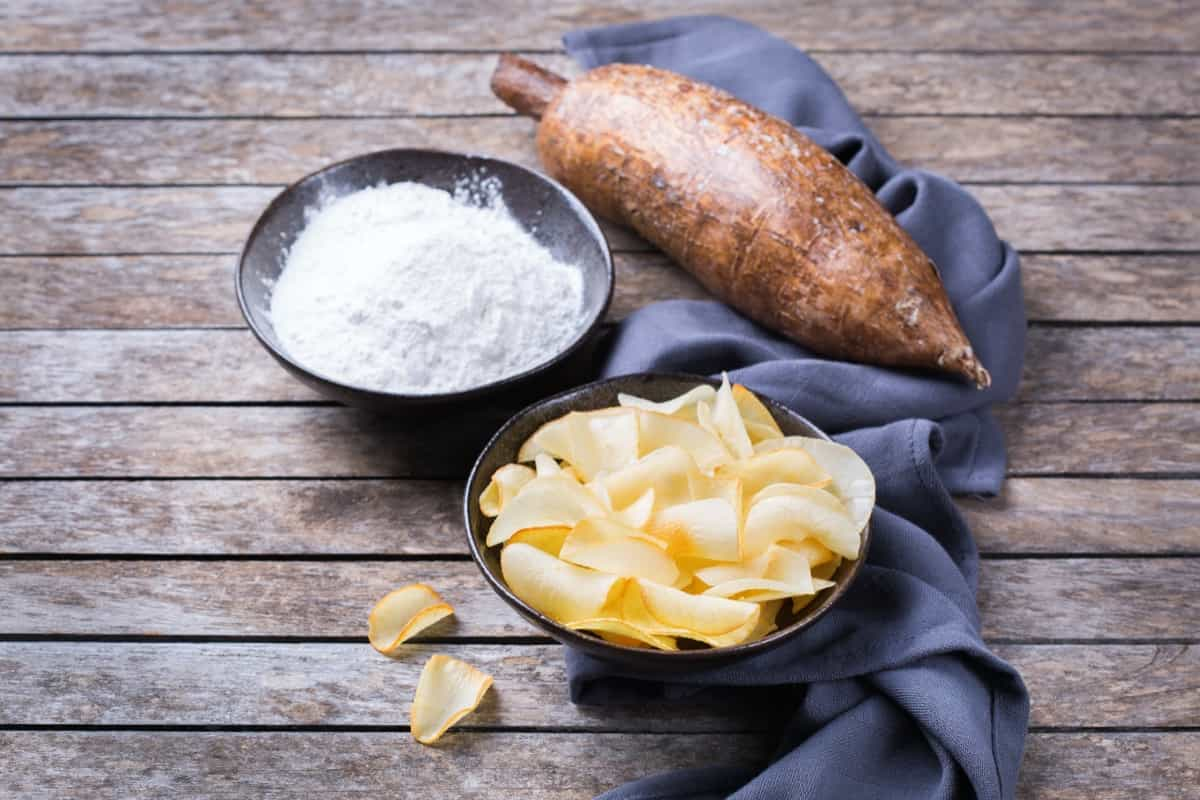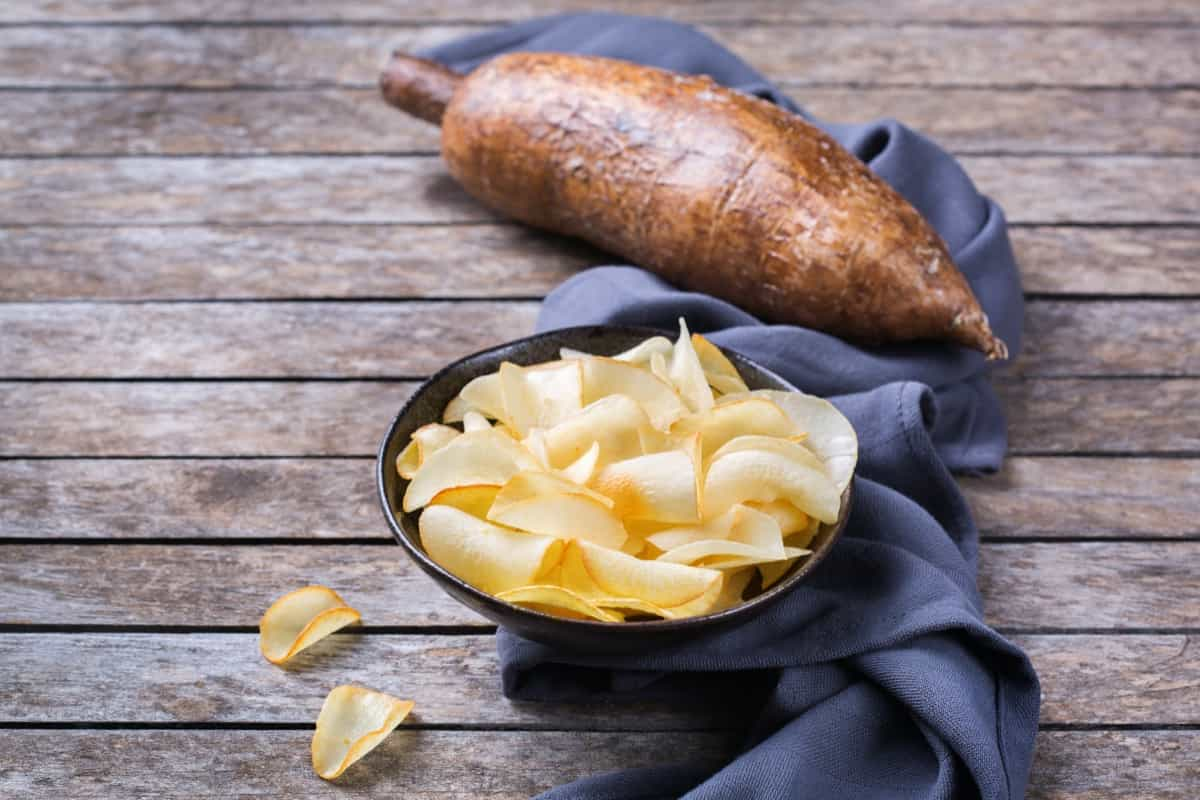Cassava chips are a popular snack made from cassava, a root crop widely cultivated in tropical and subtropical regions. The demand for cassava chips is high, making it a profitable venture for cassava farmers looking to increase their income. Below we provide a detailed step-by-step guide on how to start a cassava chips-making business. Let’s check out more information about cassava chips making business below.

What is the Process involved in making Cassava Chips?
Cassava chips are a popular snack made from cassava tubers. The process of making cassava chips involves several steps, starting with the preparation of the raw materials. The cassava tubers are washed, peeled, and sliced into thin pieces using a cassava chipper. The slices should be uniform in thickness to ensure even cooking.
Once the cassava slices are prepared, they are soaked in water to remove the starch and then dried in the sun or using a mechanical dryer. Drying is important to ensure that the chips are crispy and have a longer shelf life. The dried cassava slices are fried in vegetable oil until golden brown. The chips should be fried in small batches to ensure they cook evenly and do not stick together.
After frying, the cassava chips are seasoned with spices such as salt, pepper, and chili powder to add flavor. The seasoning should be evenly distributed to ensure every chip has the right flavor. The chips are then packed in air-tight bags or containers and labeled with the brand name, expiry date, and nutritional information. The final product is a tasty and nutritious snack that people of all ages can enjoy.
A Step by step Guide to starting your own Cassava Chips Making Business
Conduct Market Research
Before starting any business, it is essential to conduct market research to understand the demand for the product and identify potential customers. In the case of cassava chips, you need to identify the target market: schools, supermarkets, and retail stores. You also need to identify your competitors and their pricing strategy.
Acquire Raw Materials
The next step is to acquire raw materials, which include cassava tubers, vegetable oil, and seasonings. Cassava tubers can be sourced from local farmers, while vegetable oil and seasonings can be purchased from wholesalers or supermarkets.
Cassava Processing
The cassava tubers must be peeled, washed, and sliced into thin pieces using a cassava chipper. The slices should be uniform in thickness to ensure even cooking. The sliced cassava is soaked in water to remove the starch and then dried in the sun or using a mechanical dryer.
Fry the Cassava Chips
Once the cassava slices are dried, they are ready for frying. The oil should be heated to the right temperature (around 180°C), and then the cassava chips should be added in small batches to avoid overcrowding the fryer. The chips should be fried until they turn golden brown, which usually takes 5-7 minutes. Once fried, the chips should be removed from the oil using a slotted spoon and placed on paper towels to remove excess oil.
In case you missed it: Cassava Processing Plant Business Plan: A Profitable Venture for Cassava Farmers

Seasoning and Packaging
The next step is to season the cassava chips using spices such as salt, pepper, and chili powder. The seasoning should be evenly distributed to ensure every chip has the right flavor. The chips are then packed in air-tight bags or containers and labeled with the brand name, expiry date, and nutritional information.
Marketing and Sales
The final step is to market and sell the cassava chips. You can start by approaching potential customers and offering them free samples to try. You can also attend trade fairs and food exhibitions to showcase your product. You may also advertise your business on social media sites like Facebook and Instagram.
Frequently Asked Questions About Cassava Chips Making Business
How Much Does it Cost to Start Cassava Chips Making Business?
The cost of starting a cassava chips-making business varies depending on several factors, such as location, the scale of production, and the cost of raw materials and equipment. However, a rough estimate of the cost to start a small-scale cassava chips-making business can range from $2,000 to $5,000.
This cost includes the purchase of raw materials such as cassava tubers, vegetable oil, and seasonings, as well as the cost of equipment such as a cassava chipper, frying equipment, and packaging materials. Other costs, such as rental fees, labor, and marketing expenses, should also be considered when estimating the startup cost. Starting a cassava chips business is inexpensive if a farmer owns part of the equipment and raw supplies.
What is the Maturity Period of Cassava?
The maturity period of cassava depends on various environmental factors such as soil type, climate, and water availability. Generally, cassava is ready for harvest between 8 to 24 months after planting.
Early maturing cassava varieties can be harvested as early as 8 months after planting, while late maturing varieties can take up to 24 months to reach maturity. However, most varieties are ready for harvest after 12 to 18 months of planting. The timing of harvest is crucial, as leaving cassava in the ground for too long can cause the tubers to become woody and less nutritious. Harvesting at the right time is also important for yield and quality. The mature cassava tubers can be harvested manually or using machines, depending on the scale of the farm.
In case you missed it: How to Make Bone Meal Fertilizer: Homemade Recipe, DIY for Container, Indoor, and Backyard Garden Plants

What is the Price of Cassava per Ton?
The price of cassava per ton varies depending on several factors, such as the region, season, and quality. Currently, cassava prices are lower than other staple crops such as maize and rice. In Africa, cassava prices range from $100 to $200 per ton, while in Asia, prices range from $200 to $400 per ton. The price of cassava is also influenced by demand from various sectors, such as the food industry, animal feed industry, and biofuel industry. The price of cassava can also fluctuate depending on global market conditions, exchange rates, and trade policies.
Conclusion
In conclusion, the cassava chips-making business is profitable for cassava farmers, and the demand for cassava chips is high. Starting the business requires conducting market research, acquiring raw materials, processing cassava, frying the chips, seasoning, packaging, and marketing and sales. With dedication, hard work, and proper management, the cassava chips-making business can be a successful and profitable venture.
- Feed Your Flock for Less: Top 10 Tips to Save on Chicken Feed
- Ultimate Guide to Ossabaw Island Hog: Breeding, Raising, Diet, and Care
- Hatching Answers: The Top 10 Reasons Your Chickens Aren’t Laying Eggs
- Eggs and Economics: Breaking Down the Cost of Raising Backyard Chickens
- Defend Your Greens: Proven Methods to Keep Iguanas Out of Your Garden
- Ultimate Guide to Cinnamon Queen Chicken: A Comprehensive Guide for Beginners
- Ultimate Guide to California Tan Chicken: Breeding, Raising, Diet, Egg-Production and Care
- Ultimate Guide to Marsh Daisy Chicken: Breeding, Raising, Diet, and Care
- 10 Types of Chicken Farming Businesses You Can Start for Profits